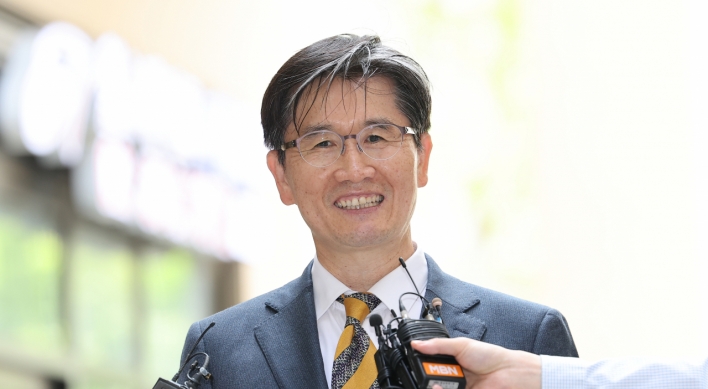Automakers led by General Motors Co. and Ford Motor Co. predict demand for cars and trucks, on pace for the best year since 2007, will remain resilient even as the U.S. was unable to avert government spending cuts that took effect Friday.
Vehicles on U.S. roads are the oldest on average in history, and Americans will continue to look to replace them with more fuel-efficient models also equipped with better technology features, the automakers’ sales executives said Friday. Ford reported its best February sales in six years.
“It’s inevitable there might be a slight, slight offset, but I think the positive factors” boosting auto demand “will overcome,” Ken Czubay, Ford’s vice president of U.S. marketing, sales and service, said Friday on a conference call.
Vehicles on U.S. roads are the oldest on average in history, and Americans will continue to look to replace them with more fuel-efficient models also equipped with better technology features, the automakers’ sales executives said Friday. Ford reported its best February sales in six years.
“It’s inevitable there might be a slight, slight offset, but I think the positive factors” boosting auto demand “will overcome,” Ken Czubay, Ford’s vice president of U.S. marketing, sales and service, said Friday on a conference call.

U.S. light-vehicle sales in February rose 3.7 percent to 1.19 million, matching the average estimate of 10 analysts. The annualized sales rate, which is adjusted for seasonal trends, rose to 15.4 million from 14.5 million a year earlier. The average sales pace projected by 15 analysts was 15.3 million.
Ford’s deliveries of cars and light trucks last month climbed 9.3 percent, GM’s jumped 7.2 percent, Toyota Motor Corp.’s increased 4.3 percent and Chrysler Group LLC’s rose 4.1 percent, according to company statements.
The average estimates of 11 analysts were for gains of 9.8 percent by Ford, 4.9 percent for GM and 4.4 percent for Chrysler. GM and Chrysler, majority owned by Fiat SpA, said separately their February sales were the best in five years. Toyota was projected to report an 8.5 percent increase, the average of eight analysts’ estimates.
With Democrats and Republicans deadlocked over how to replace across-the-board cuts, known as sequestration, totaling $1.2 trillion over nine years, President Barack Obama issued an order last night putting the reductions into effect ― $85 billion worth for the remaining seven months of the current fiscal year.
“There’s a lot of discussion about Washington right now, but we still feel that the fundamentals are strong and are going to continue,” Kurt McNeil, vice president of U.S. sales operations, said Friday on the company’s conference call.
GM rose 0.2 percent to $27.21 at the close in New York Friday, while Ford was unchanged at $12.61. The Standard & Poor’s 500 Index increased 0.2 percent.
Sales dropped 2 percent for Honda Motor Co. and 6.6 percent for Nissan Motor Co. in February. The averages of eight analysts’ estimates were for a 0.7 percent increase for Honda and a 3.3 percent decline for Nissan.
New-car buyers, shunned by lenders just four years ago, are now benefiting from historically low interest rates and better availability of financing. Auto sales rebounded from the U.S. recession that ended in 2009 more quickly than housing did, boosting the economy as volumes approach pre-recession levels.
Banks reported the most common rate for a 48-month new-car loan was 4.82 percent in November, the most-recent reporting period. The rates have dropped from more than 7 percent before the Fed lowered its target interest rate to zero in December 2008 and began large-scale asset purchases to boost growth.
“People quite frankly have become completely numb to that whole budget issue,” Al Castignetti, Nissan’s vice president of U.S. sales, said in an interview, adding that consumers will “absolutely not” pull back in March if the spending cuts go into effect. “Consumer confidence is on the rise. People are taking advantage of the low interest rates.”
Ford’s has said its outlook is for about 2 percent to 2.5 percent growth for the U.S. economy this year. Full implementation of the sequester may represent a “drag” on gross domestic product of about half a percentage point, Ellen Hughes-Cromwick, Ford’s chief economist, said Friday on the company’s call.
In spite of the potential headwind, Ford plans to boost second-quarter production to 800,000 vehicles in North America, from 737,000 a year earlier. Chrysler said Feb. 28 it will invest $374 million to increase output of transmissions.
“I think people will keep on buying,” Sergio Marchionne, Chrysler’s chief executive officer, told reporters Feb. 28 at one of the company’s factories in central Indiana. He declined to comment about the government’s negotiations, telling reporters “I’m not part of it, nor do I think it’s going to have a negative impact” on industry sales.
GM, which has been targeting lower full-size pickup inventory ahead of the release of new trucks this year, reduced its stock of those models to 97 days supply from 117 at the end of January. Sales of Chevrolet Silverado pickups rose 29 percent in February, while GMC Sierra surged 25 percent, the Detroit- based company said in a statement.
Large pickups make up one of the main sources of profit for GM, Ford and Chrysler. Dearborn, Michigan-based Ford’s F-Series pickups recorded a 15 percent sales gain last month while Chrysler’s Ram deliveries rose 3.1 percent.
Chrysler’s Dodge brand sales surged 30 percent as the Dart compact, introduced in June, set a monthly record of 7,720 deliveries. Chrysler’s sales have increased 35 consecutive months, matching the longest streak for the Auburn Hills, Michigan-based company since one that ended December 1994.
Combined sales for Hyundai Motor Co. and Kia Motors Corp. declined 2.5 percent last month to 93,816, the first monthly drop for the affiliates’ total deliveries since August 2010. The average estimate of six analysts was for a 5.1 percent decrease. Hyundai’s sales grew 2.3 percent and Kia’s slipped 7.8 percent, the Seoul-based companies said in separate statements.
Volkswagen AG posted an 8.2 percent increase in combined sales for its VW and Audi brands, trailing the 9.2 percent average of four analysts’ estimates.
(Bloomberg)
-
Articles by Korea Herald









![[Weekender] How DDP emerged as an icon of Seoul](http://res.heraldm.com/phpwas/restmb_idxmake.php?idx=644&simg=/content/image/2024/04/25/20240425050915_0.jpg&u=)

![[Today’s K-pop] NewJeans' single teasers release amid intrigue](http://res.heraldm.com/phpwas/restmb_idxmake.php?idx=644&simg=/content/image/2024/04/26/20240426050575_0.jpg&u=)






![[Herald Interview] Mistakes turn into blessings in street performance, director says](http://res.heraldm.com/phpwas/restmb_idxmake.php?idx=652&simg=/content/image/2024/04/28/20240428050150_0.jpg&u=)
